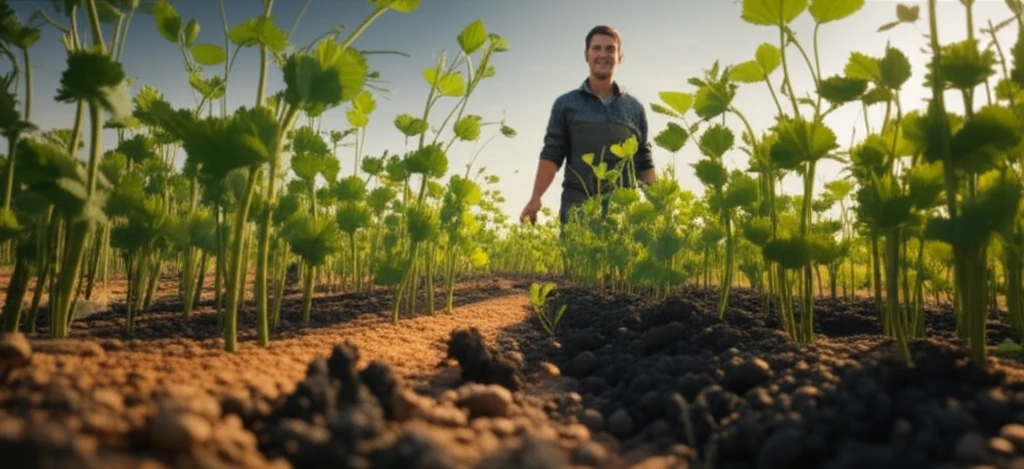
Unlocking the Potential of Legumes: How Biochar Can Revolutionize Weed Control
"Exploring the delicate balance between biochar application and weed management for sustainable lentil cultivation."
Lentil, a vital legume crop worldwide, faces significant challenges from weed competition, impacting yield and quality. Traditional weed management relies heavily on herbicides, raising environmental and health concerns. Finding sustainable, eco-friendly alternatives is crucial for modern agriculture.
Biochar, a charcoal-like substance produced from biomass pyrolysis, has emerged as a promising soil amendment. Its potential benefits include improved soil fertility, enhanced water retention, and carbon sequestration. However, the impact of biochar on weed dynamics is complex and warrants careful investigation.
This article delves into the research examining the effects of varying biochar application rates on weed growth in lentil cultivation. It explores the potential for biochar to serve as a natural weed suppressant, promoting sustainable and environmentally responsible farming practices. Uncover how this innovative approach could reshape weed management strategies and enhance lentil production.
Biochar's Balancing Act: Weed Control vs. Legume Growth

Research indicates that biochar's influence on weed growth is intricately linked to its application rate. While higher application rates can effectively suppress weed emergence and biomass, they may also inadvertently affect the growth and yield of the target crop, in this case, lentil. Finding the optimal balance is critical to harnessing biochar's weed control capabilities without compromising crop productivity.
- Altered Soil Properties: Biochar modifies soil pH, nutrient availability, and water retention, creating an environment less favorable for weed germination and establishment.
- Physical Barrier: Biochar particles can act as a physical barrier, hindering weed seed emergence from the soil surface.
- Release of Allelochemicals: Some biochars may release allelochemicals, natural compounds that inhibit weed growth.
The Future of Farming: Biochar as a Sustainable Solution
The research highlights biochar's promise as a sustainable weed management tool in lentil production. By carefully optimizing application rates and considering site-specific factors, farmers can leverage biochar's weed-suppressing effects while promoting healthy crop growth.
Further research is needed to fully understand the long-term impacts of biochar on soil ecosystems and weed communities. Investigating the interactions between biochar, soil microbes, and weed species will be crucial for developing effective and sustainable weed management strategies.
Ultimately, biochar offers a valuable addition to the toolbox of sustainable agriculture, paving the way for reduced herbicide use, improved soil health, and enhanced crop productivity. As we strive for more environmentally responsible farming practices, biochar holds immense potential to transform the way we manage weeds and cultivate our crops.
